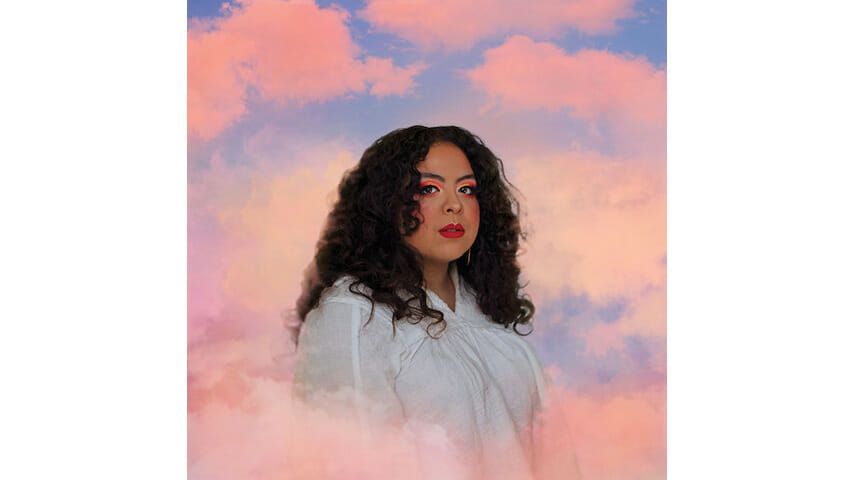No Album Left Behind: KAINA’s Next to The Sun
Reflections on identity and purposelessness ground the Chicago artist’s gorgeous debut LP as she overcomes her fears
Music Reviews KAINA
Over the course of 2019, Paste has reviewed about 300 albums. Yet, hundreds—if not thousands—of albums have slipped through the cracks. This December, we’re delighted to launch a new series called No Album Left Behind, in which our core team of critics reviews some of their favorite records we may have missed the first time around, looking back at some of the best overlooked releases of 2019.
Eight tracks into her debut album Next to The Sun, KAINA finds clarity. “I am so small, so vast,” the Chicago artist sings on “So Small / So Vast” as cymbals clatter gently and keys whisper in quarter notes. The statement, though brief, describes Next to The Sun in a nutshell: The LP clocks in at a compact 31 minutes, but as KAINA delivers soothing reflections on Latinx identity and feelings of purposelessness atop music that fuses pop, R&B, jazz and salsa, the album feels as expansive as countless longer collections.
KAINA’s aimlessness tends to intertwine itself with other emotions. “Burned out / Feeling all the heat rise to my next doubts,” she declares on the LP’s title track after stating that she’s “dancing in my duality.” Which is to say: Feeling uninspired doesn’t have to mean losing touch with your deep connection to your culture. She delivers these sentiments over a pair of Latin guitar melodies, amplifying her unwavering Latinx pride just as handclaps, softly rattling percussion and distant, jazzy synths give a second voice to KAINA’s doubts.
Although Latinx identity plays an essential role throughout Next to The Sun, it mostly functions as a hum—Latin influences abound in KAINA’s arrangements and melodies—rather than a hammer to the head. Instead, her lyrics far more often center around her doubts, as best exemplified on the fiery “What’s a Girl,” during which she slams an interrobang onto the song’s defining lyric (“What’s a girl without ambition?”) halfway through the second chorus. Over palm-muted distorted guitar chugs and dissipating percussive echoes, her admission that she’s “sick of not having shit / Stuck in between having everything and nothing at all” and “struggling admitting these God-awful feelings of wanting more than all I’ve got” emphasizes her emotional malaise. It resonates because it’s relatable, so when she says “no one feels the way I do” on “Ghost,” listeners are almost certain to disagree.
When KAINA does explicitly address her Latinx roots, she conjures some of Next to The Sun’s brightest moments. “Look how these brown hands cook all your meals / But Mama says you want us all to disappear,” she sings over soft, jazzy keys on “House.” Toward the song’s end, she more poetically reiterates this unsubtle message: “There’s room for plenty in this house.” She at once opens her heart and soul to whomever needs that extra bit of friendship and affirms that this country—where Latinx people are inarguably experiencing widespread bigotry—can easily welcome people from all walks of life. The mostly-Spanish first two verses of the gently twilit “Could Be a Curse” likewise cement her Latinx background, just as a mostly-Japanese guest verse from Sen Morimoto—KAINA’s best friend and closest collaborator—centers his identity as a person of color.
“Lay in my bed / What if I die here / Holding my breath?” KAINA asks on the song’s chorus, a highlight of the album’s more hopeful B-side. Next to The Sun is sequenced to showcase not just KAINA’s driftless state of mind, but the relief she felt upon overcoming her mountainous burden. “I can’t recall the last time that I ever felt this blank,” she reminisces over warm, gauzy synths and slightly off-rhythm cymbal hits on “Waiting on a Day,” which boasts by far Next to The Sun’s catchiest bassline. “I’ve been through so many moods / You’ve seen them too,” she reflects on “Green,” the album’s most overtly salsa-influenced song and certainly its most overjoyed (and its only track to feature brass, an invigorating addition). “Doubting is hard to undo,” she continues, suggesting that she’s come closer to self-actualization than she knew possible: “Know me for my truth.” In KAINA’s sprawling but concise little world, her truths feel universal.